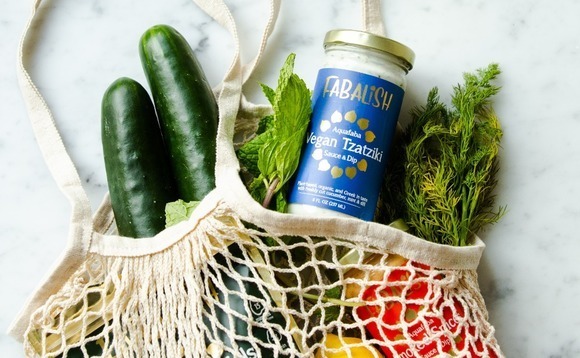
Chinese grocery player Miss Fresh sells shares at $31m valuation

Chinese online grocery delivery platform Miss Fresh has agreed to sell an 88.1% stake to a third-party investor at a valuation of approximately USD 31m – one-tenth of the company’s market capitalisation when it listed in June 2021.
Mejoy Infinite, a China-based provider of online marketing services, will subscribe to 5.4bn class B ordinary shares for USD 27m, subject to certain closing conditions, according to a filing. The new issuance will heavily dilute the 732.9m existing class A and class B shares. However, the new investors – described as Mejoy and its shareholder – will delegate all voting rights to Miss Fresh’s chairman and CEO.
Miss Fresh will then acquire all outstanding shares in Mejoy for USD 12m in cash, thereby adding customised digital marketing services to its offering.
The company’s stock has gained 247% since the deal was announced on August 5, ending morning trading on August 7 at USD 2.50 for a market capitalisation of USD 19.8m.
It comes a year after Miss Fresh announced it would sell an approximately 33% stake to Shanxi Donghui Group, a commodities-focused state-owned enterprise, at a valuation of USD 90m. The promised funding did not materialise, forcing Miss Fresh to shutter its on-demand distributed mini warehouse (DMW) service and its next-day delivery service. These two business lines represented 90% of revenue.
Miss Fresh took a front-warehouse approach to grocery delivery, operating small warehouses in city centres instead of large suburban facilities, which was intended to speed up fulfilment. There was an emphasis on sourcing directly from farmers as a means of ensuring product quality and timely delivery and bringing greater efficiency to a highly fragmented upstream agricultural supply chain.
In addition, the company moved aggressively into software, supporting the digitisation of traditional wholesalers and retailers. It operated “intelligent fresh markets” on a contract basis across China and sold cloud-based software-as-a-service (SaaS) to large-scale supermarkets.
Ultimately, the intelligent fresh market and retail cloud businesses were also discontinued as Miss Fresh resolved to pursue private-label product retail. The company said in its most recent annual report that it wanted to focus on high-protein foods such as beef. Cooperation agreements have already been struck with e-commerce platforms like JD.com to distribute these products.
Digital marketing solutions were also identified as a strategic priority, with Miss Fresh looking to leverage its expertise in e-commerce and grocery supply chains.
Miss Fresh raised more than USD 1.6bn in private funding between its founding in 2015 by two former executives at Joyvio Group, an agribusiness unit of Legend Holdings, and its IPO. Investors include Tiger Global Management, Tencent Holdings, Jeneration Capital, Goldman Sachs, Davis Selected Advisors, Genesis Capital, Lenovo Capital, and GX Capital.
It secured USD 800m in the second half of 2020 alone from CICC Capital and several funds with ties to the government of Qingdao, which wanted to support expansion on China’s eastern seaboard. Tencent and the Qingdao government funds were the largest external shareholders as of June 2023 with 7.6% and 7.5%, respectively. Their voting stakes are much smaller because of the dual-class share structure.
The company raised USD 273m through its IPO, selling shares at USD 13.00 apiece. A group of existing investors contributed USD 90m to the offering. The stock fell on debut and never recovered. Miss Fresh has received several delisting warnings from NASDAQ for its stock trading below USD 1.00 and its market capitalisation failing to reach the required minimum of USD 5m.
Other headwinds include an accounting scandal, concerns about a business model – pursued by many Chinese consumer internet companies – that prioritises scale before sustainability, and substantial price corrections in US-listed Chinese concept stocks.
At the same time, the explosive growth experienced by China’s fresh produce market in response to COVID-19 lockdowns and social distancing attracted a flood of competitors into the space. These included leading consumer internet players like Alibaba Group, Meituan, JD.com, and Pinduoduo.
Miss Fresh generated revenue of CNY 2.76bn (USD 400.4m) in 2022, down from CNY 6.95bn a year earlier. Its net loss narrowed from CNY 3.85bn to CNY 1.52bn.
Latest News
Asian GPs slow implementation of ESG policies - survey
Asia-based private equity firms are assigning more dedicated resources to environment, social, and governance (ESG) programmes, but policy changes have slowed in the past 12 months, in part due to concerns raised internally and by LPs, according to a...
Singapore fintech start-up LXA gets $10m seed round
New Enterprise Associates (NEA) has led a USD 10m seed round for Singapore’s LXA, a financial technology start-up launched by a former Asia senior executive at The Blackstone Group.
India's InCred announces $60m round, claims unicorn status
Indian non-bank lender InCred Financial Services said it has received INR 5bn (USD 60m) at a valuation of at least USD 1bn from unnamed investors including “a global private equity fund.”
Insight leads $50m round for Australia's Roller
Insight Partners has led a USD 50m round for Australia’s Roller, a venue management software provider specializing in family fun parks.








